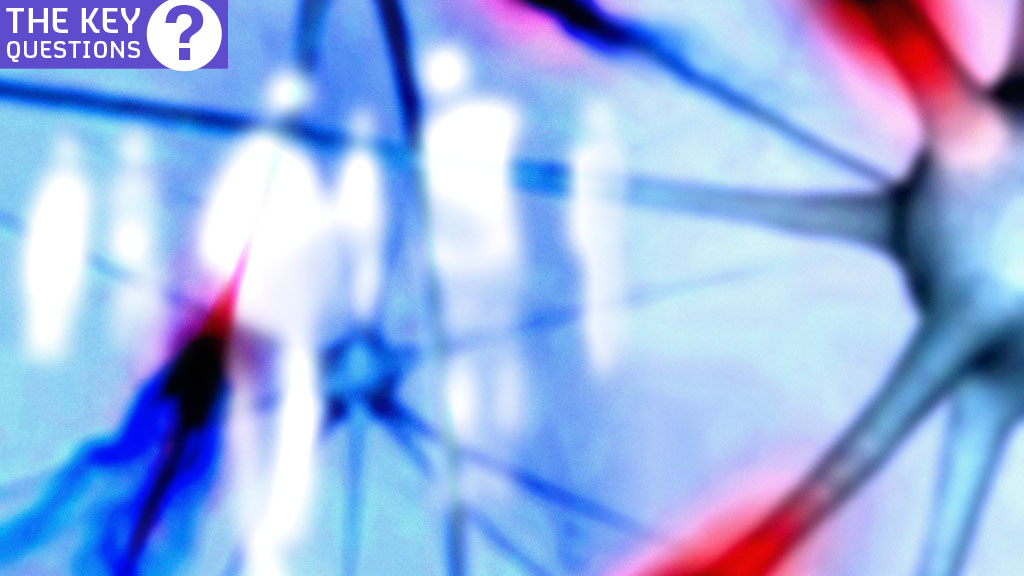What is dementia? The key questions
As the UK hosts a major G8 summit on dementia, Channel 4 News explains how to recognise symptoms of the disease, and looks at how best to help sufferers.

The “dementia challenge” was launched in March 2012 by Prime Minister David Cameron to tackle one of the most important issues we face as the population ages.
There are three dementia challenge champion groups, each focusing on one of the main areas for action: driving improvements in health and care, creating dementia-friendly communities, and improving dementia research.
A YouGov poll commissioned by the Alzheimer’s Society found that 61 per cent of people are worried about either themselves or someone they know developing dementia in later life. That rises to 66 per cent among people aged 55 and over.
Read more: why diagnosing dementia could become that little bit easier
What is dementia?
It is important to remember that dementia is not a specific disease – it is an overall term that describes a wide range of symptoms associated with a decline in memory or other thinking skills severe enough to reduce a person’s ability to perform everyday activities.
What causes dementia?
Dementia is caused by damage to brain cells. This damage interferes with the ability of brain cells to communicate with each other.
When brain cells cannot communicate normally, thinking, behaviour and feelings can be affected.
What are the symptoms of dementia?
Diagnosing dementia is often difficult, particularly in the early stages. Some of the first signs of Alzheimer’s disease include lapses in memory and an inability to find the right words.
Other symptoms that may develop include more severe memory loss, mood changes and communication problems.
How to diagnose dementia?
If you, or someone you are close to, have been feeling confused, agitated or forgetful, it may be a good idea to visit the GP.
The mini mental state examination (MMSE) is the most commonly used test for complaints of memory problems or when a dementia diagnosis is being considered.
After receiving a diagnosis, it is important to consider what to do next. To help with this, you may want to find out more about dementia so that you can get a better idea of what to expect.
You may also want to think about driving, health, legal decisions, working, money and benefits.
Planning for the future can make things easier to manage later on, so take advantage of all the advice, services and support available to you.
In most instances, there are no ways to cure the diseases that cause dementia. However, there are drugs available that may alleviate some of the symptoms.
Read more: NHS figures predict dementia timebomb
What are the types of dementia?
Alzheimer’s disease
Alzheimer’s is the most common cause of dementia, affecting around 496,000 people in the UK. Alzheimer’s is a physical disease affecting the brain.
It is a progressive disease, which means that over time more parts of the brain are damaged. As this happens, symptoms become more severe.
People in the early stages of Alzheimer’s disease may experience lapses of memory and have problems finding the right words.
As the disease progresses, they may:
- become confused and frequently forget the names of people, places, appointments and recent events
- experience mood swings, feel sad or angry, or scared and frustrated by their increasing memory loss
- become more withdrawn, due either to a loss of confidence or to communication problems
- have difficulty carrying out everyday activities – they may get muddled checking their change at the shops or become unsure how to work the TV remote
As the disease progresses, people with Alzheimer’s will need more support from those who care for them. Eventually, they will need help with all their daily activities.
While there are some common symptoms of Alzheimer’s disease, it is important to remember that everyone is unique. No two people are likely to experience Alzheimer’s in the same way.
Vascular dementia
Vascular dementia, the second most common form of dementia after Alzheimer’s disease, is caused by problems in the supply of blood to the brain.
Typically, the symptoms of vascular dementia begin suddenly, for example after a stroke. Vascular dementia often follows a “stepped” progression, with symptoms remaining at a constant level for a time and then suddenly deteriorating.
Fronto-temporal lobar degeneration
In fronto-temporal dementia, damage is usually focused in the front part of the brain. Personality and behaviour are initially more affected than memory.
Rarer causes of dementia
There are many other rarer causes of dementia, including progressive supranuclear palsy and Binswanger’s disease. People with multiple sclerosis, motor neurone disease, Parkinson’s disease and Huntington’s disease can also be at an increased risk of developing dementia.
Read more: things to do to lower the risk of dementia
Helping people with dementia
It is very important that people with dementia are treated with respect.
When a person with dementia finds that their mental abilities are declining, they often feel vulnerable and in need of reassurance and support.
The people closest to them - including their carers, health and social care professionals, friends and family - need to do everything they can to help the person retain their sense of identity and feelings of self-worth.
The person with dementia needs to feel respected and valued for who they are now, as well as for who they were in the past.
Many people with dementia have a fragile sense of self-worth. It is especially important that people continue to treat them with courtesy, however advanced their illness.
Useful links
- Caring for a person with dementia: http://www.alzheimers.org.uk
- Living well with dementia: http://www.nhs.uk
- G8 dementia summit: http://dementiachallenge.dh.gov.uk
- Ten ways you can help a family living with dementia: http://www.saga.co.uk
- Guide to understanding dementia behaviors: http://www.caregiver.org
-
Latest news




